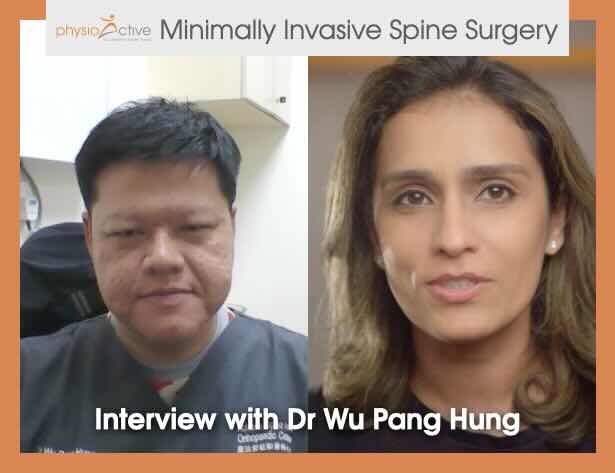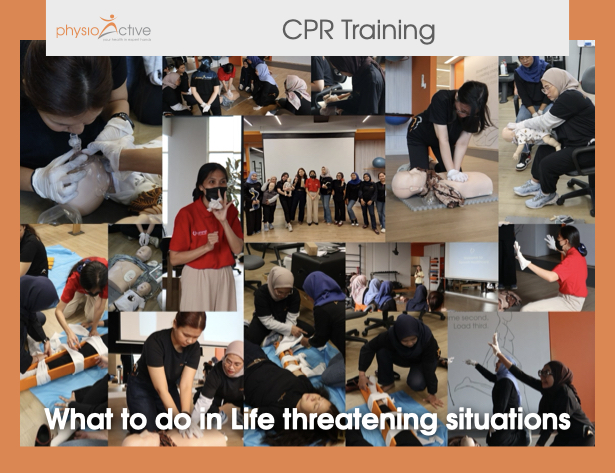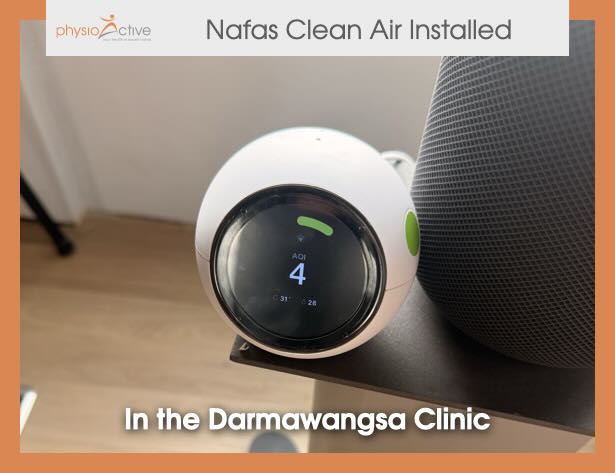Singapore Surgeon Insight Series with Dr. Ramesh Subramaniam – ACL Repair and Reconstruction
Many patients come with complaints of knee pain, instability and/or swelling and in some cases, this could require an Anterior Cruciate Ligament or ACL repair or reconstruction.
The state of the ACL may be diagnosed using arthrometers / Laximeters, physical examinations, running and MRI scan.
Background on the knee joint
The knee joint is located where the end of the thigh bone (femur) meets the top of the shin bone (tibia).
Four main ligaments connect these two bones:
- Medial collateral ligament (MCL) runs along the inside of the knee. It prevents the knee from bending inward.
- Lateral collateral ligament (LCL) runs along the outside of the knee. It prevents the knee from bending outward.
- Anterior cruciate ligament (ACL) is in the middle of the knee. It prevents the shin bone from sliding out in front of the thigh bone.
- Posterior cruciate ligament (PCL) works with the ACL. It prevents the shin bone from sliding backward under the femur.
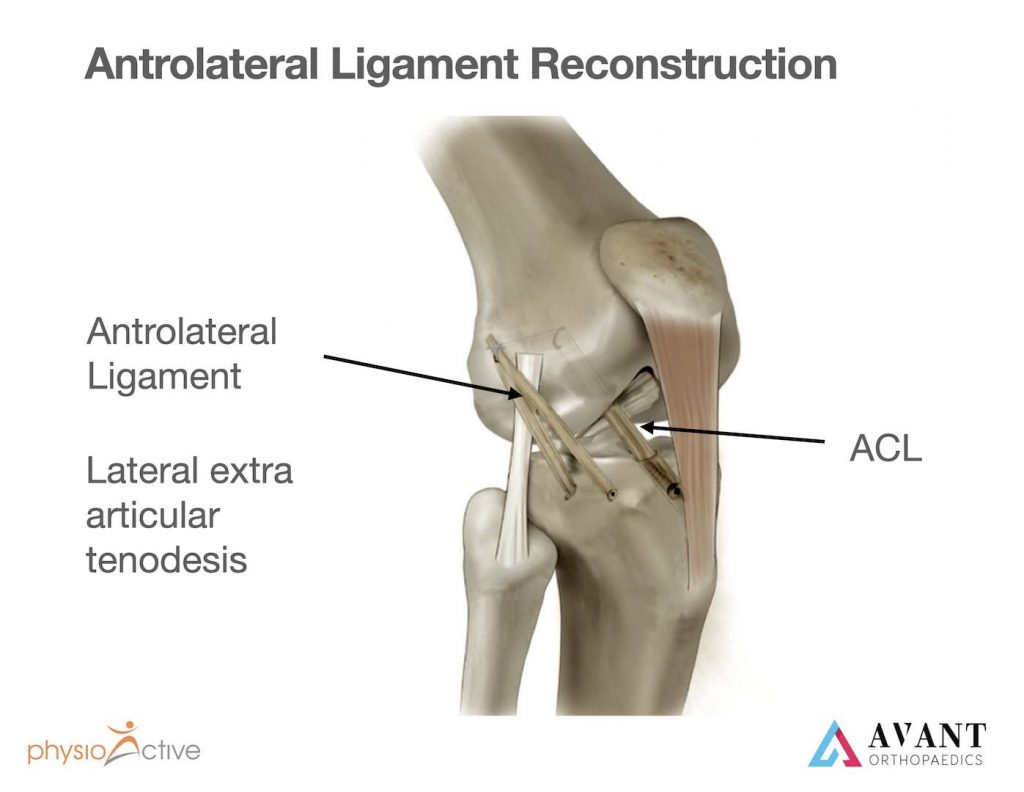
Causes of ACL injury
An ACL injury can occur if you:
- Get hit very hard on the side of your knee, such as during a football tackle
- Overextending your knee joint
- Quickly stop moving and change direction while running, landing from a jump, or turning
Most ACL tears occur in the middle of the ligament, or the ligament is pulled off the thigh bone. These injuries form a gap between the torn edges, and do not heal on their own.
Symptoms of an ACL injury
- A “popping” sound at the time of injury
- Obvious knee swelling within 6 hours of injury
- Pain, especially when you try to put weight on the injured leg
- Difficulty in continuing with your sport
- Feeling of instability
Dos and Don’ts
Do’s
- Raising your leg above the level of the heart
- Putting ice on the knee
- Pain relievers, such as non-steroidal anti-inflammatory drugs (such as ibuprofen)
- Crutches to walk until the swelling and pain get better
- Brace to give your knee some stability
- Physiotherapy to help improve joint motion and leg strength
- Surgery to reconstruct the ACL
Don’ts
- Move your knee if you have had a serious injury.
- Use a splint to keep the knee straight until you see a doctor.
- Return to play or other activities until you have been treated.
Timeline for ACL Surgery
ACL Pre-habilitation
ACL prehab, is a physiotherapy program that patients go through before their surgery. Many orthopedic surgeons recommend a prehab program before major surgeries as a growing body of evidence suggests that prehab is beneficial for recovery.
ACL Prehab helps to maximize the function and the health of the knee prior to surgery. Generally speaking, the better your knee is before going into surgery, the better it recovers coming out of surgery. You may start prehabilitation exercises with a physiotherapist, as soon as the swelling and pain in the injured site have been controlled.
The recovery period after surgery can last 6 months or even up to 12 months based on the sports you would like to get back into, the timeline below
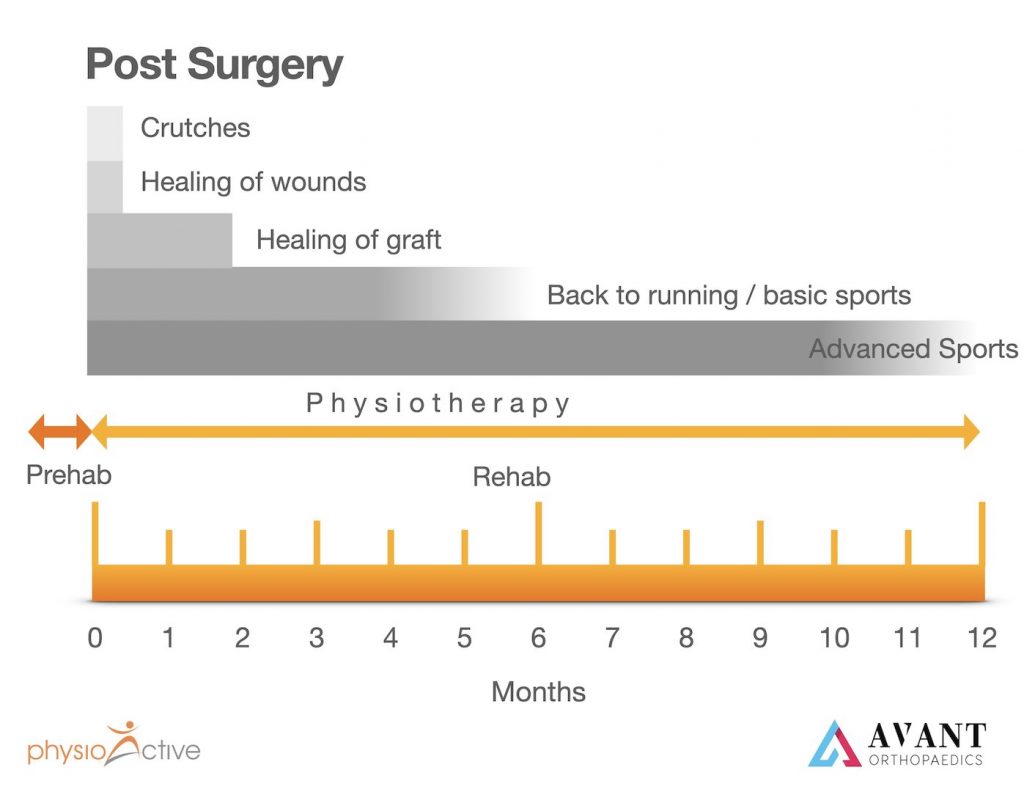
In the recovery period, it is vital that the surgeon and the physiotherapist communicate on a regular basis and that from time to time the physiotherapist sends progress report, and the program is adjusted.
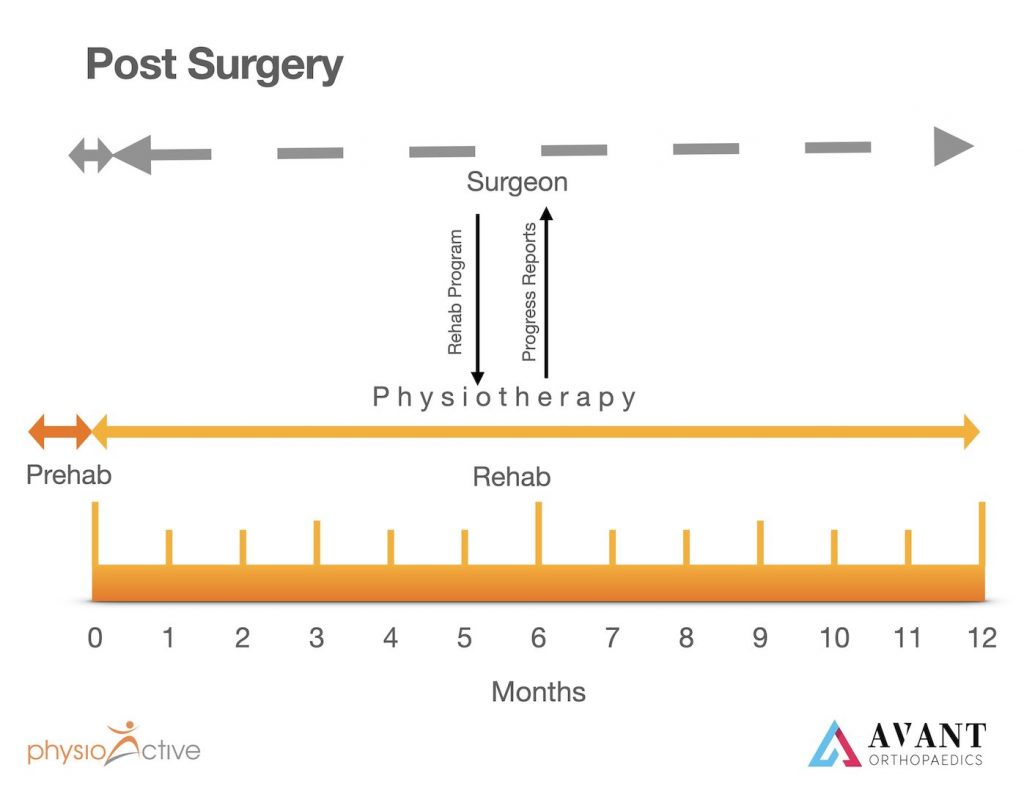
Making an appointment
To make an appointment with Dr Ramesh Subramaniam, his contact details are
- web: www.avantortho.com.sg
- phone: +65 6262 3616
For Physioactive Singapore, find your closest location at: www.physioactive.sg
For Physioactive Indonesia, book directly online here.

